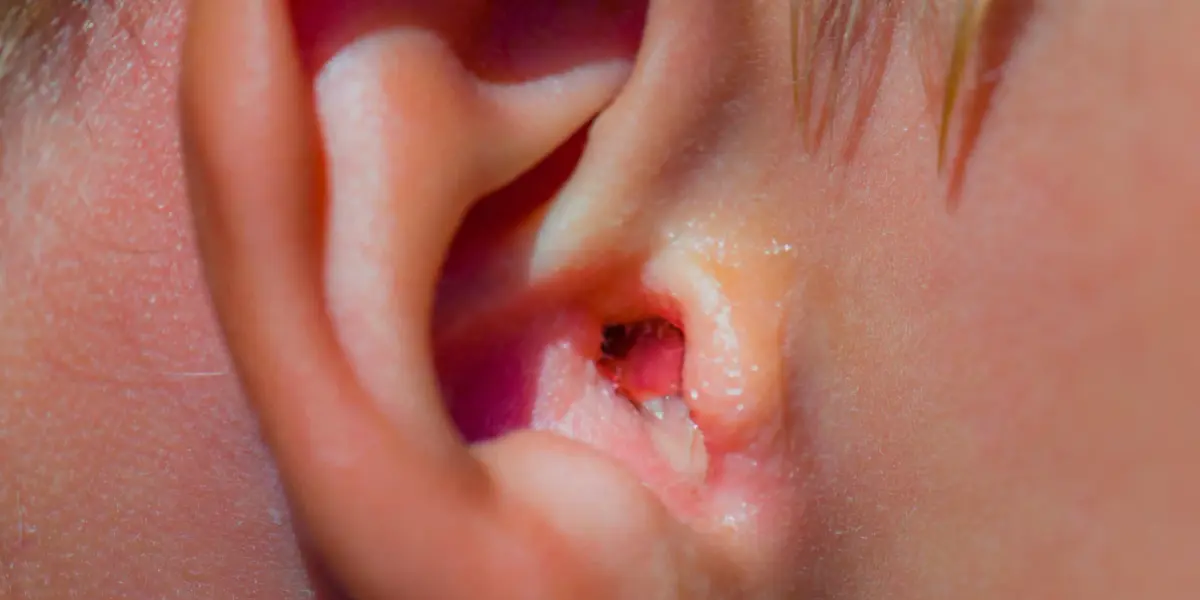Swimming is a fun activity to maintain your health and get your heart pumping. There are benefits of swimming that favor you in the long run as well. But when it comes to swimmer’s ears, your ears are delicate and have many fragile components that can get affected by this condition. This condition is a common side-effect of swimming that can damage your ear canals if left untreated for long.
Swimmer’s Ear: Overview, Symptoms, Diagnosis, Management And Prevention
Having your ears cleaned and not putting anything in your ears is the best way to prevent your ears from getting swimmer’s ears. Anyway, if you are keen to know more detailed information about swimmers’ ears, then this article is particularly for you. Keep reading and get everything about your condition.

Overview
Swimmer’s ears are a condition that occurs in people who are regular swimmers and prefer to enjoy swimming as much as possible. This condition is also known as otitis externa; it happens when a person leaves his/her ears wet for a long. When the water in your ear canal gets stuck, it makes the environment in the frontal ear canal wet. The wetness allows the bacteria to grow in the area, infecting the region.
Swimmer’s ears are not severe in their early stages, but if left untreated for long, it can lead to loss of hearing in the worst cases. When looking to diagnose your condition or prevent it from ever happening, you need to keep your ears dry all the time and use eardrops frequently.
What Are The Indications And Signs Of Swimmer’s Ears?
When it comes to indications and signs of a swimmer’s ear, when you have had a swimming session, you can always check your ears for pain or wetness and know your condition. Symptoms of swimmer’s ear are simple, and you will know about your cognition soon if your ear doesn’t heal itself soon enough. Let’s look at more details on the symptoms of swimmer’s ear down below:
1. Itchy Ear Canal
If you had a swimming session a few hours ago, and you start to feel itchy in your ears, it is a strong sign that you have this condition. Feeling itchy in your ears might seem normal to you, but check your ears for wetness. If they are wet, consult your doctor immediately.
2. Discomfort In Your Ears
The ear is a delicate organ; several components are essential for the proper function of your hearing. When water gets in your ears and gets stuck in the region, and you start to feel discomfort in your ear, it is a sign that you have swimmer’s ear.
3. Intense Pain
Pain is a common symptom of a swimmer’s ear when you feel a needle-like pain in your ear after a swimming session. The pain usually increases and becomes intense if left untreated, so consult your physician immediately and get your ears checked.
4. Odorless Fluid Out Of Your Ear
An odorless fluid comes out of your affected ear when you have Swimmer’s ear for a couple of days. The fluid is usually pus and dead skin cells that are the result of infection in your frontal ear canal. Keep your ears dry as much as possible, and use eardrops frequently.
How To Diagnose Your Condition?
When it comes to diagnosing your swimmer’s ear, obviously, you can’t do it yourself. You need to consult your doctor for a physical examination. The doctor will assess your condition and prescribe you medications for pain and infection. Physical examination consists of your doctor inserting sample heads in your affected ear and taking samples for further tests. Afterward, the specialist will recommend the necessary treatment for you.
Getting Relief From Swimmer’s Ears
Treating a swimmer’s ear takes time and a lot of suffering. When you have this condition for a couple of days, the infection must have been spread in your ear canals. This causes a lot of pain and discomfort, leaving you distressed, so getting it treated is the last resort you have. Here are the ultimate treatments that you’ll get from your doctor:
1. Use Prescribed Ear Drops
An ear drop prescribed by your doctor for treating your swimmer’s ear has special anti-bacterial and anti-fungal properties. These ear drops are beneficial in killing all the bacteria in your ear canal and relieving you from infection. Put a few drops in your affected ear every few hours and clean your ears every time.
2. Always Dry Clean Your Ears
Keeping your ears dry as much as possible prohibits the growth of bacteria in your ear canal. A dry environment is unsuitable for the bacteria causing your swimmer’s ear. Dry clean your ears frequently and use clean clothes every time to prevent further infection in other areas of your ear.
3. Go For Pain-Relief Medications
A doctor or your physician will provide you with pain-relief medications for your pain. These drugs target the bacteria in your ear and relieve you from infection at the same time, resulting in pain relief. Usually, when the pain is intense, you can take over-the-counter medicines like ibuprofen or combi flex for pain relief.
What Are Some Preventions From Swimmer’s Ear?
When you are a regular swimmer and don’t want to get a swimmer’s ear every time you go for your passion, it is necessary to choose prevention. When it comes to preventing your ears from getting this infection in the first place, always avoid inserting your fingers or anything in your ears, keep your ears dry after a swimming session, and get your ears professionally cleaned frequently.
Read More:- 6 Sound Strategies To Improve Your Ear Health Effectively: Clean Ear, Clear Sound

Summing Up
Swimmer’s ear is one of the most common ear conditions among people who go swimming most often. The infection is not contagious, but if left untreated for long, it can spread in your inner ear canal and affect your hearing as well. If you are not looking for any type of permanent damage to your ears, then always keep your ears dry and sanitary. Always consult a professional or physician before taking action to treat your condition yourself. This will prevent you from damaging your ears from any unnecessary damage.
References:
- Centers for Disease Control and Prevention. Swimmer’s ear (otitis externa) (https://www.cdc.gov/healthywater/swimming/swimmers/rwi/ear-infections.html). Accessed 11/15/2022.
- Association of Family Physicians. Acute Otitis Externa: An Update (https://www.aafp.org/pubs/afp/issues/2012/1201/p1055.html). Accessed 11/15/2022.
- Swimmer’s ear (otitis externa). American Academy of Otolaryngology Head and Neck Surgery. https://www.enthealth.org/conditions/swimmers-ear-otitis-externa/. Accessed May 20, 2021.